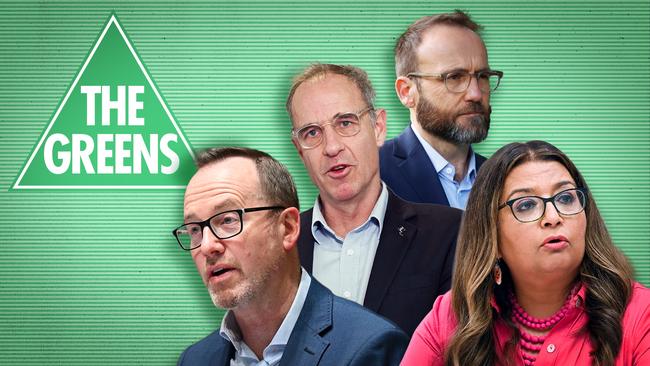
This means replacing Labor rather than working with it, a task highly ambitious yet highly improbable.
To realise this vision the Greens must become more than simply a party of protest.
Bandt has also rejected the “ACT model”, where the Greens hold a formal power-sharing agreement with Labor and their MPs are rewarded with cabinet portfolios.
Sketching out his political strategy, Bandt says his key priority is all about lower house expansion, not a formal governing alliance with Labor.
However, if his plan succeeds at the next election, Bandt will win more seats, cement minority government as the new norm and unleash a more contested progressive politics on the nation.
Bandt argues this is a superior pathway for Australia, but it is doubtful many Australians would agree. Minority governments pose the potential threats of greater political instability, weakened political accountability and constant discord.
Sharpening his threat to Anthony Albanese, Bandt makes another audacious argument; that the Greens have stolen ground from Labor in its traditional areas of strength.
He says the Greens are at the vanguard of tackling economic inequality, strengthening the social safety net, improving outcomes for the younger generation and supporting greater foreign policy independence.
His strategy has been to renovate the party by anchoring it on a broader set of issues beyond climate and the environment. Asked what issues he is passionate about, Bandt identifies economic inequality and housing.
Green Extremes
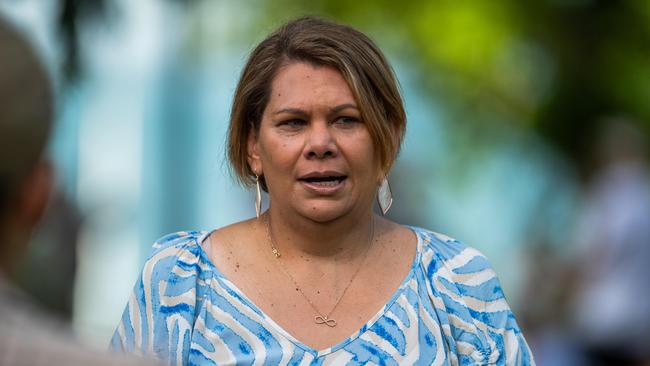
Makarrata ‘can put Australia Day row to rest’
The Greens have accused Labor of abandoning the truth and treaty process after the referendum defeat, but argue a Makarrata commission could help resolve the Australia Day debate.
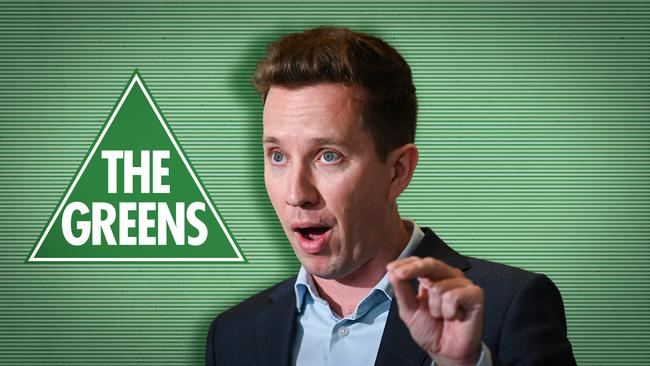
Your home will be worth less with us: Greens
Greens housing spokesman Max Chandler-Mather says a plan to address the housing crisis could involve overseeing real declines in the value of the family home.
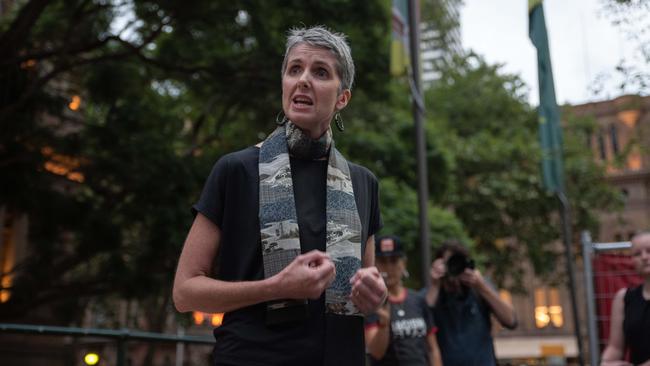
Jewish community in fear after Greens Mayor’s anti-Israel rant
One of Sydney’s biggest councils will ramp-up security at its next meeting after its Greens mayor accused Israel and its supporters of ‘murdering babies’ in an ‘inflammatory’ speech.
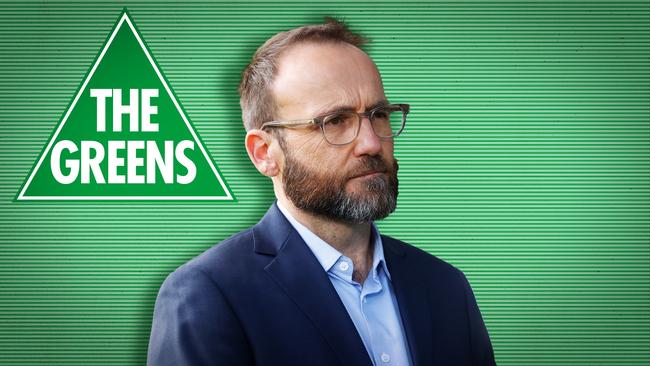
Bandt plan to usurp ALP on left
Adam Bandt says the Greens have replaced Labor as the authentic party of the centre-left and will win over voters by taking a ‘Robin Hood platform to the election’.
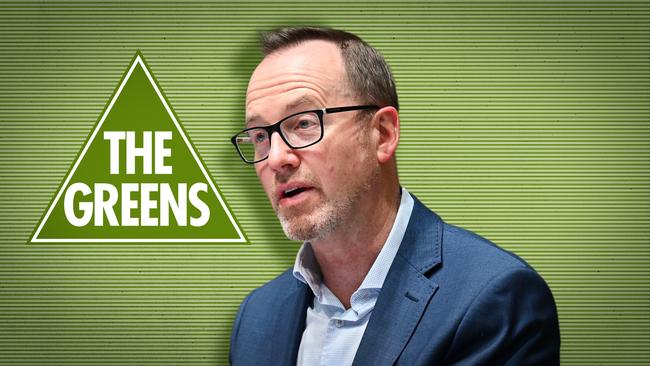
Greens’ war on our closest ally
The Greens have attacked the US alliance, claiming it increases the risk of conflict, undermines Australian sovereignty and compromises stable relations with Beijing.
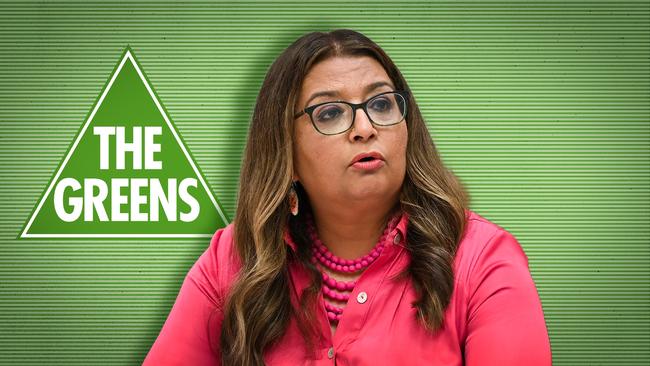
Ambitious Greens must be more than a party of protest
Adam Bandt has clarified the existential challenge to Labor by revealing the Greens’ long-term political objective – to become the genuine party of Australia’s political left.
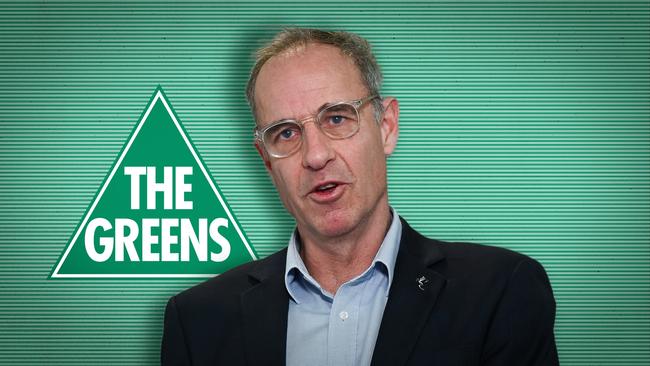
Extreme Greens call to kneecap the RBA
The Greens have demanded Labor intervene in monetary policy and overturn an August rate hike, triggering warnings the minor party would end of the era of Reserve Bank independence.
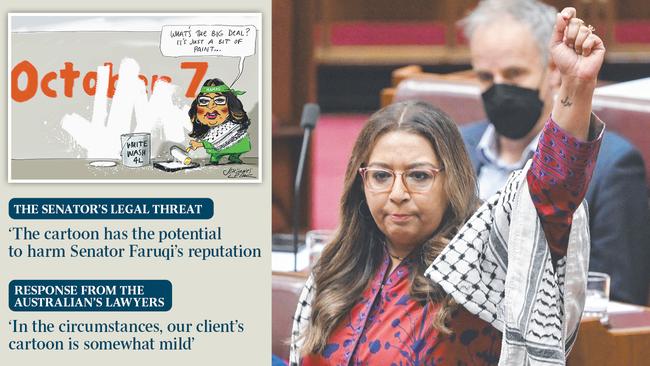
Forget Hamas, glass-jaw Green declares war on satire: ‘Cartoon will cost me votes’
Greens senator Mehreen Faruqi has threatened to sue The Australian for defamation and demanded an apology over a Johannes Leak cartoon.
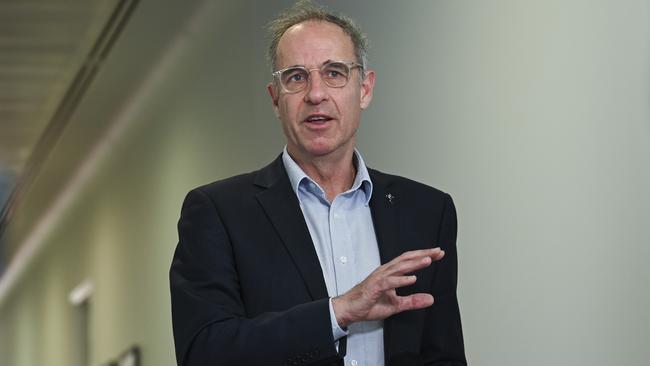
Greens’ plan would hurt those the party is seeking to help
Nick McKim’s call for Labor to overturn a future RBA rate hike reveals the Greens as a party of grandstanders, keen to win over disaffected voters on radical policies that can never be implemented.
Under Bandt’s leadership, the Greens are entering a new phase of development. A broader constituency must be housed within their tent and it is likely there will be missteps along the way.
One clear overreach has already been committed. The Greens’ position on the Gaza conflict has fuelled fierce criticism from both major parties that it has driven anti-Semitism in Australian society.
The Greens’ accusation that Labor is “complicit” in genocide, and their support for radical activists – many of whom have disrupted university campuses and electorate offices – have stained the party’s reputation and alienated many Australians. With a broader policy offering, it may become harder to keep everyone in the Greens’ tent.
They face other new challenges including greater scrutiny, more criticism and more pressure in the rough-and-tumble of the 24-hour media cycle as they become a more influential political force.
Managing greater internal debate, disagreement and division over policy will be inevitable. Bandt argues he is up to the job, saying 100 Greens policies have already been sent to the Parliamentary Budget Office, and he welcomes a more exacting appraisal of the platform.
These will become new trials of leadership for Bandt as he steers the Greens through their adolescence into a more formidable political entity. The challenge is just beginning.
If Bandt realises his objective and the Greens become a balance-of-power party in both houses, there will be a new test: Will it gravitate towards compromise and negotiation on key legislation or will it remain on the fringes?
In 2009, the Greens revealed they were nothing more than a party of protest when they rejected Kevin Rudd’s CPRS. There is no indication from Bandt at this stage that he would deviate from this mentality or support more centrist policy positions in the event of a hung parliament.
This would be a recipe for a more fractured Australian parliament and further erode confidence in the political system.




Adam Bandt has clarified the existential challenge to Labor by revealing the Greens’ long-term political objective – to become the genuine party of Australia’s political left.